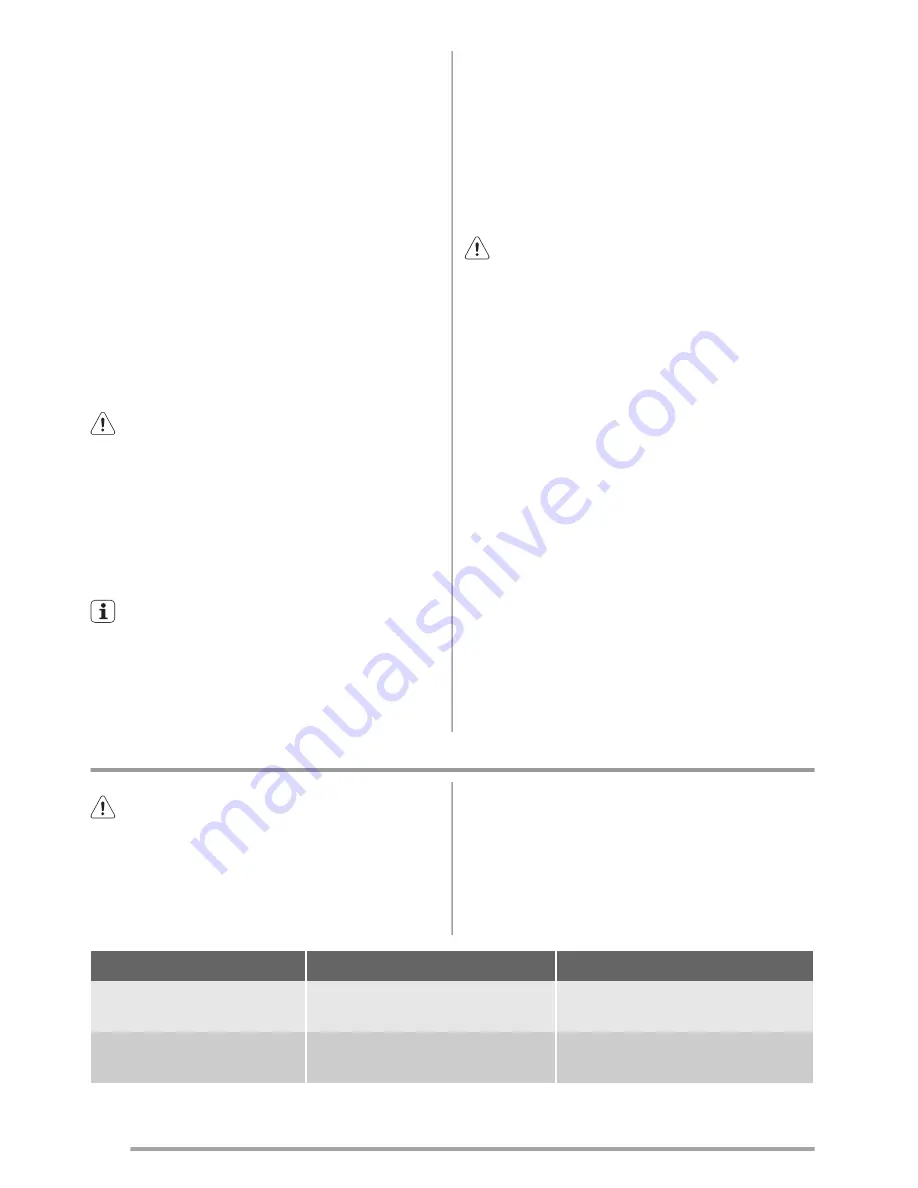
Defrosting the freezer
A certain amount of frost will always form on the freezer
shelf and around the freezing area.
Defrost the freezer when the frost layer reaches a thickness
of about 3-5 mm.
Important! About 4-5 hours prior to defrosting, set the
Temperature Regulator to "SUPER" position, in order to
build up sufficient chill reserve for the interruption in
operation.
To remove the frost, follow the instructions below:
1. Switch off the appliance and disconnect the mains
plug from the mains socket.
2. Remove any stored food, wrap it in several layers of
newspaper and put it in a cool place.
Caution! Do not touch frozen goods with wet hands.
Hands can freeze to the goods.
3. Leave the door open and remove the freezing shelf. It
is possible to scrape off and remove smaller frost
and ice with a plastic scraper. Sweep off melting wa-
ter and it can be removed if an adequately high tray
is put in front of the appliance and the defrost water
will flow into it.
In order to speed up the defrosting process, place a
pot of warm water in the freezer. In addition, remove
pieces of ice that break away before defrosting is com-
plete.
4. When defrosting is completed, dry the interior thor-
oughly.
5. Switch on the appliance.
6. Turn the Temperature Regulator to a "SUPER" posi-
tion and leave to run for at least 4 hours.
7. Reload the previously removed food into the com-
partments.
8. Return the Temperature Regulator to "NORMAL" po-
sition.
Warning! Never use sharp metal tools to scrape off
frost from the evaporator as you could damage it.
Do not use a mechanical device or any artificial means to
speed up the thawing process other than those
recommended by the manufacturer.
A temperature rise of the frozen food packs, during
defrosting, may shorten their safe storage life.
Periods of non-operation
When the appliance is not in use for long periods, take the
following precautions:
1. disconnect the appliance from electricity supply
2. remove all food
3. defrost and clean the appliance and all accessories
4. leave the door/doors open to prevent unpleasant
smells.
Important! If the cabinet will be kept on, ask somebody to
check it once in a while to prevent the food inside from
spoiling in case of a power failure.
What to do if…
Warning! Before troubleshooting, disconnect the
mains plug from the mains socket.
Only a qualified electrician or competent person must do
the troubleshooting that is not in this manual.
Important! There are some sounds during normal use
(compressor, refrigerant circulation).
Important! The appliance operates discontinuously, so the
stopping of compressor does not mean being no current.
That is why you must not touch the electrical parts of the
appliance before breaking the circuit.
Problem
Possible cause
Solution
The appliance is noisy
The appliance is not supported prop-
erly
Check if the appliance stands stable (all
the four feet should be on the floor)
The compressor operates contin-
ually
The thermostatic control is set incor-
rectly
Set a warmer temperature
6






























